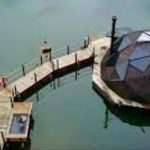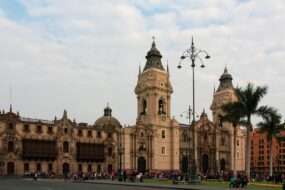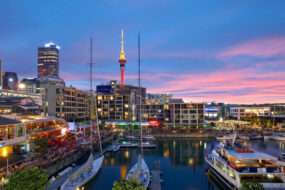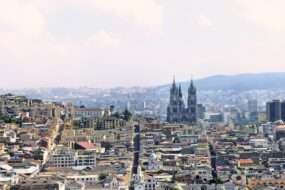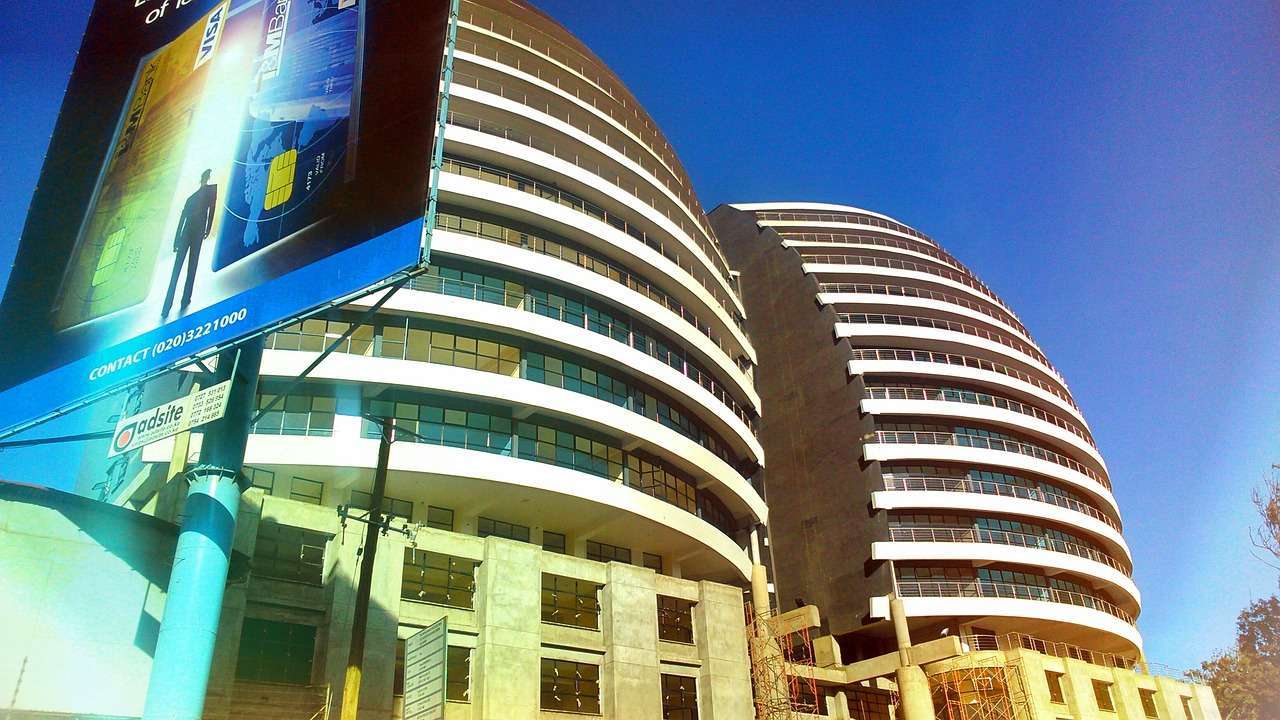
Nairobi, the vibrant capital of Kenya, is a city that seamlessly blends urban charm with natural wonders. Nestled in the heart of East Africa, this bustling metropolis has earned the well-deserved reputation of being the Safari Capital of the World. With its rich history, diverse culture, and breathtaking wildlife, Nairobi offers an unparalleled experience for adventurous travelers and nature enthusiasts alike.
Exploring Nairobi's City Attractions
Nairobi National Museum: Unveiling the Treasures of Kenya's Past
At the forefront of Nairobi's cultural scene, the Nairobi National Museum stands as a testament to Kenya's rich heritage. This captivating institution showcases a vast collection of archaeological artifacts, ethnographic exhibits, and art masterpieces. Visitors can immerse themselves in the country's history, from prehistoric times to the present day, through thought-provoking displays and interactive exhibits. The museum also hosts regular events, such as art exhibitions and cultural performances, adding an extra layer of excitement to the visitor experience.
Giraffe Centre: A Close Encounter with Majestic Creatures
A visit to the Giraffe Centre is a must for animal lovers seeking an up-close encounter with these graceful creatures. Located in the leafy suburb of Langata, this conservation center plays a vital role in the preservation of the endangered Rothschild's giraffe. Visitors can witness the awe-inspiring sight of these gentle giants as they roam freely within the center's grounds. Don't miss the chance to feed them and even get a friendly kiss from one of these majestic creatures. It's an experience that will leave a lasting impression on any wildlife enthusiast.
Karen Blixen Museum: Stepping into the World of “Out of Africa”
Immerse yourself in the captivating world of Karen Blixen, the renowned Danish author, at the Karen Blixen Museum. Housed in the former residence of this literary icon, the museum offers a glimpse into the life and times of Blixen during her years in Kenya. As you explore the beautifully preserved rooms, you'll be transported back in time to an era of romance, adventure, and African charm. The museum's serene surroundings, set against the backdrop of the Ngong Hills, add to the enchantment of this remarkable attraction.
David Sheldrick Wildlife Trust: A Haven for Orphaned Elephants
Prepare to be moved by the incredible work done at the David Sheldrick Wildlife Trust. This sanctuary, located within Nairobi National Park, provides a safe haven for orphaned elephants and other vulnerable wildlife. Visitors can witness firsthand the dedication and love shown by the caretakers as they nurture and rehabilitate these magnificent creatures. The trust offers a unique opportunity to adopt an elephant, contributing to their long-term care and conservation efforts. It's a heartwarming experience that allows you to make a difference in the lives of these gentle giants.
Nairobi Railway Museum: A Glimpse into Kenya's Railway Legacy
For history buffs and railway enthusiasts, the Nairobi Railway Museum is a treasure trove of nostalgia. Housed in the old railway headquarters, this museum offers a fascinating journey through Kenya's railway heritage. Explore vintage locomotives, carriages, and artifacts that tell the story of the country's colonial past and its enduring love affair with rail transport. The highlight of the museum is undoubtedly the famous Lunatic Express steam locomotive, which played a significant role in connecting Nairobi to Mombasa during the early 20th century.
History: Tracing Nairobi's Past
Nairobi's history is deeply intertwined with the development of Kenya as a nation. Originally a swampy plain inhabited by Maasai communities, the area gained prominence during the construction of the Mombasa-Kisumu railway in the late 19th century. The city grew rapidly as British colonialists settled in the region, establishing Nairobi as the capital of British East Africa in 1907. Over the years, Nairobi transformed into a thriving urban center, attracting people from all corners of the country and beyond.
Culture: A Melting Pot of Diversity
Nairobi's cultural landscape is a tapestry woven from various ethnic groups, each contributing to the city's vibrant identity. The city is home to a diverse population that includes Kikuyu, Luo, Luhya, Kalenjin, and many other communities. This cultural diversity is reflected in Nairobi's arts, music, cuisine, and festivals. Visitors have the opportunity to immerse themselves in traditional dances, sample authentic dishes, and explore local markets bursting with vibrant colors and flavors.
Climate: Embracing Nairobi's Pleasant Weather
Nairobi enjoys a moderate climate throughout the year, thanks to its elevation at around 1,795 meters (5,889 feet) above sea level. The city experiences two distinct rainy seasons, from March to May and October to December. The dry months, particularly January and February, offer the best weather for outdoor activities and wildlife sightings. With temperatures ranging from 10°C to 28°C (50°F to 82°F), Nairobi provides a pleasant escape from the scorching heat often associated with other African destinations.
How to Reach Nairobi: Gateway to East Africa
Nairobi is well-connected to major international destinations through Jomo Kenyatta International Airport, which serves as a gateway to East Africa. Numerous airlines operate flights to Nairobi, making it easily accessible from various parts of the world. Additionally, the city is well-connected by road and rail networks within Kenya and neighboring countries, providing convenient travel options for those exploring the region.
Best Time to Visit: Embracing Nairobi's Wildlife and Festivals
The best time to visit Nairobi largely depends on your interests and preferences. For wildlife enthusiasts, the dry months of January and February offer optimal conditions for game drives in Nairobi National Park and other nearby reserves. The Great Migration, one of nature's most awe-inspiring spectacles, occurs in the Maasai Mara from July to October, making it an ideal time for a combined safari experience. Culture enthusiasts will find themselves captivated by Nairobi's festivals and events. The Nairobi International Film Festival in October showcases the best of African cinema, while the Nairobi Cultural Festival in December celebrates the city's cultural diversity through music, dance, and food.
FAQs
1. Is Nairobi safe for tourists?
Nairobi is generally a safe city for tourists. However, like any major urban center, it's advisable to take precautions and remain vigilant, particularly in crowded areas and at night. It's recommended to use reputable transportation services, avoid displaying valuable items, and seek local advice regarding safe neighborhoods and areas to explore.
2. Can I go on a safari from Nairobi?
Absolutely! Nairobi serves as an excellent starting point for safari adventures in Kenya. Nairobi National Park, located just outside the city, offers a unique opportunity to spot wildlife such as lions, giraffes, zebras, and rhinos in their natural habitat. Additionally, the city's proximity to other renowned national parks, including Amboseli and Maasai Mara, makes it a convenient base for exploring Kenya's diverse wildlife.
3. What is the currency used in Nairobi?
The official currency of Kenya is the Kenyan Shilling (KES). It's recommended to carry some local currency for small purchases and to have a credit card for larger expenses. ATMs and currency exchange services are widely available in Nairobi, making it convenient to obtain Kenyan Shillings.
4. Are there vegetarian and vegan food options in Nairobi?
Nairobi offers a wide range of dining options to cater to various dietary preferences, including vegetarian and vegan choices. From trendy vegan cafes to traditional restaurants, you'll find plenty of establishments serving delicious plant-based dishes. The city's diverse culinary scene ensures that even the most discerning herbivores will find something to satisfy their taste buds.
5. Are there any unique souvenirs to buy in Nairobi?
Nairobi is a treasure trove of unique souvenirs that reflect Kenya's rich culture and craftsmanship. Consider purchasing handcrafted Maasai jewelry, colorful kikois (traditional African garments), intricately carved wooden sculptures, or vibrant Maasai blankets. These souvenirs not only make for memorable keepsakes but also support local artisans and contribute to the preservation of Kenya's cultural heritage.
Conclusion
Nairobi, the Safari Capital of the World, offers an extraordinary blend of natural beauty, cultural heritage, and captivating wildlife. From exploring the city's renowned museums and conservation centers to embarking on thrilling safari adventures in nearby national parks, Nairobi is a destination that caters to every traveler's desire for discovery and exploration. With its unique attractions, rich history, and warm hospitality, Nairobi is undoubtedly a city that deserves a top spot on every traveler's bucket list. So, pack your bags, embrace the spirit of adventure, and get ready to embark on an unforgettable journey to Nairobi, where the wonders of Africa await.






